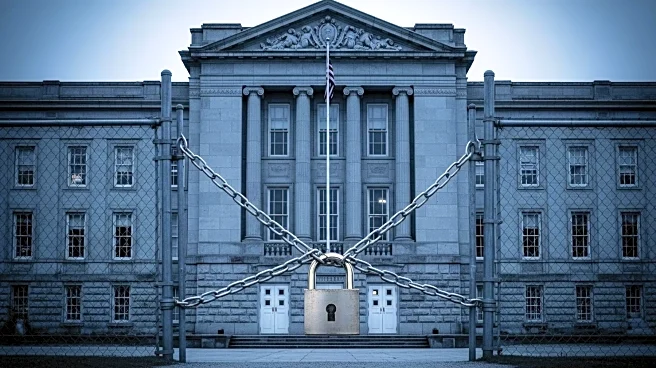What's Happening?
The U.S. Senate has failed once again to pass legislation to reopen the government, marking the ninth day of the ongoing shutdown. Both Democratic and Republican proposals to fund the government were unsuccessful, leaving federal operations in a state of uncertainty. The shutdown has affected various government services and employees, with significant economic implications. The deadlock in Congress reflects deep partisan divisions, complicating efforts to reach a consensus on budgetary issues.
Why It's Important?
The prolonged government shutdown has far-reaching consequences for the U.S. economy and public services. It disrupts federal operations, affecting everything from national parks to regulatory agencies. The impasse also highlights the challenges of bipartisan cooperation in Congress, which could have long-term implications for legislative processes and governance. As the shutdown continues, pressure mounts on lawmakers to find a resolution, with potential impacts on public trust in government institutions.
What's Next?
As the shutdown persists, negotiations between political leaders are expected to intensify. Stakeholders, including federal employees and affected industries, are likely to increase pressure on Congress to resolve the impasse. The situation may lead to further political maneuvering, with potential compromises or alternative proposals emerging. The outcome will depend on the ability of lawmakers to bridge partisan divides and prioritize the reopening of government services.










